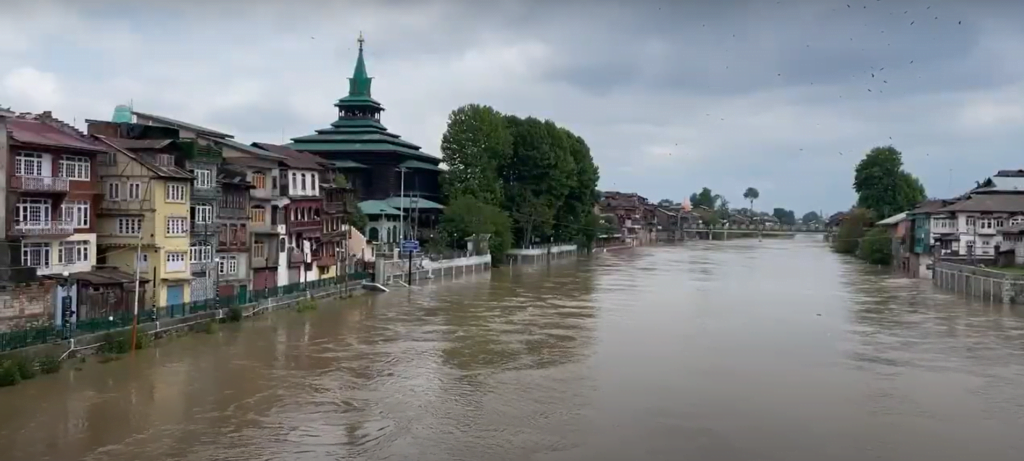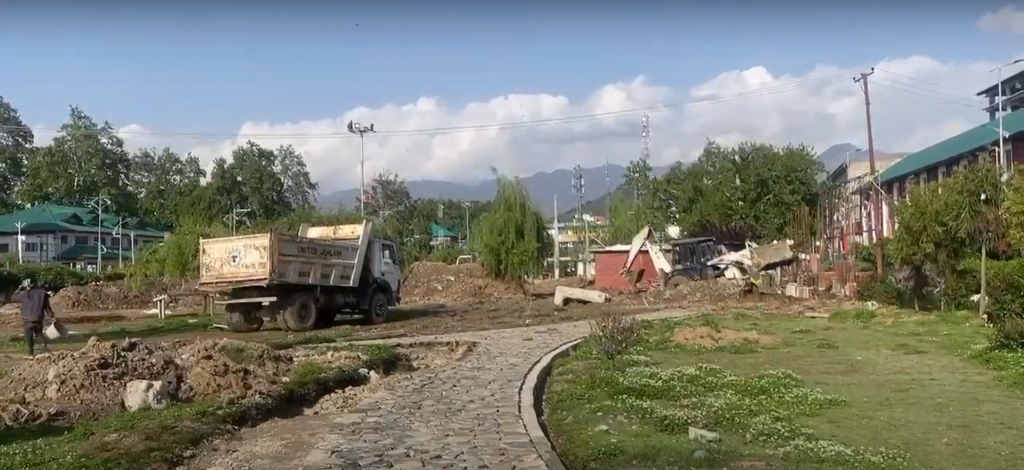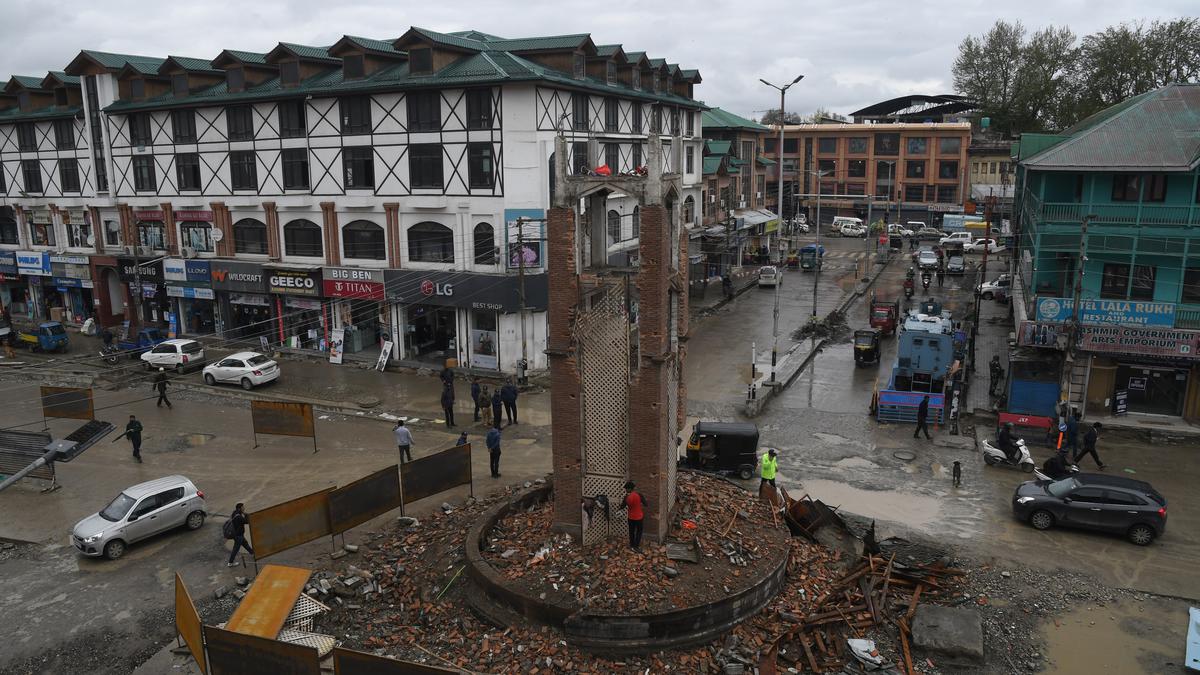The Smart City project in Srinagar is focused on transforming the city by utilising its rich natural and cultural heritage. The project aims to introduce inclusive solutions that will improve the overall quality of life for the residents. The project is being overseen by Srinagar Smart City Limited (SSCL) as part of the Smart Cities Mission initiated by the Ministry of Housing and Urban Affairs, Government of India.
The project comprises initiatives like smart traffic management systems, wastewater recycling, smart metering, city beautification, heritage conservation, and downtown renewal. This project has an impressive portfolio of 137 projects, with 66 already completed and 71 currently ongoing. It covers a wide range of domains such as mixed land use, housing, transport, and governance, demonstrating a comprehensive approach to urban development leading to increased productivity and an improved quality of life for residents.
Rafiq Bhat, a resident raises concerns regarding the allocation of resources in the valley post the abrogation of Article 370. He says, ‘Despite the implementation of various developmental smart projects, there is an absence of a proper drainage system to manage rainwater effectively.’
While Rafiq acknowledges the government’s efforts, he also mentions, ‘There is a pressing need for a more strategic allocation of resources and the necessity of prioritising urgent infrastructure needs such as drainage, macadamisation, and electricity over initiatives aimed at beautifying the valley to attract tourists.’
Delay in development
The project has faced delays and slow progress in developing key infrastructure. While infrastructure development and implementation pose significant challenges, the lack of efficiency and delays in previous government initiatives have significantly impeded the advancement of the Smart City project. Consequently, Srinagar city as well as the urban areas continues to face issues like poor roads, traffic management, and solid waste management.
The absence of proper drainage infrastructure often leads to waterlogging during heavy rainfall, exacerbating the risk of flooding and posing threats to public health and safety. Moreover, the unreliable electric supply in Srinagar, Jammu and Kashmir, disrupts daily life, causing inconvenience and hindering productivity.
The absence of proper drainage infrastructure often leads to waterlogging during heavy rainfall, exacerbating the risk of flooding and posing threats to public health and safety. Moreover, the unreliable electric supply in Srinagar, Jammu and Kashmir, disrupts daily life, causing inconvenience and hindering productivity.
Residents often face frequent power outages, impacting businesses, essential services, and the overall well-being of the community. The transportation system is marred by congestion and inefficiency, further hindering mobility and economic development. Also, managing the financial aspects effectively remains a critical challenge for the Srinagar and Jammu Smart City projects, despite significant budgets being allocated.
In the wake of recent heavy rainfall triggering a flood-like situation in Kashmir, residents are lamenting the mismanagement of resources, particularly in the context of the government’s focus on smart city projects. Even the regions beyond the boundaries of the city experienced severe blockage.
In the wake of recent heavy rainfall triggering a flood-like situation in Kashmir, residents are lamenting the mismanagement of resources, particularly in the context of the government’s focus on smart city projects. Even the regions beyond the boundaries of the city experienced severe blockage. It is worth noting that this area underwent significant renovations as part of the Smart City Project last summer. However, the implementation of these improvements seems to have inadvertently resulted in a reduction of road space and the obstruction of the natural rainwater drainage towards Dal Lake.
The failure of many smart projects to address basic infrastructure necessities, particularly drainage, underscores the importance of focusing on fundamental requirements before pursuing grander development plans.

Rafiq further adds, ‘The selection of representatives in the Lok Sabha elections 2024 should translate into a commitment to address the pressing issues faced by Kashmiris.’ His statement resonates with the desire for greater representation and inclusion in the national political discourse, particularly in light of recent developments in Kashmir. Rafiq’s concern resonates with many residents who have experienced the consequences of inadequate infrastructure during recent flooding incidents.
Misplacing priorities
Adding to the chorus of voices criticising the government’s prioritisation of smart city projects over basic amenities, Fasil Ahmad, another resident highlights the disparity between promises made and actions taken.
He says, ‘Despite grandiose claims surrounding the smart city initiative, the essential services for the people have been neglected. There is a necessity for policymakers to listen to such concerns and allocate resources judiciously to address the most pressing needs of the community.’

Fasil’s remarks underscore the importance of prioritising basic amenities like water, sanitation, and electricity over ambitious but often disconnected development projects. Moreover, Fasil voices his expectations from the upcoming elections in Srinagar city, he says, ‘The elected Lok Sabha candidates should actively engage with issues urgent to the Kashmiri population. This includes advocating for improved infrastructure, equitable development, tackling unemployment, and fostering meaningful connections with local communities.’
The recent catastrophe has not only caused widespread damage but has also unveiled the stark reality behind the lofty promises of state-of-the-art infrastructure. As the voices of discontent grow louder, it becomes increasingly crucial for policymakers to heed the concerns of residents like Fasil and Rafiq. There is a need to redirect efforts towards addressing the genuine needs of the Kashmiri populace.
Despite assurances from the government regarding the enhancement of infrastructure facilities, the flood-like situation has highlighted the inadequacies in preparedness and response measures. It must be noted that the city also lacks proper management for its 750 heritage structures. The multiplicity of executing and implementing agencies has led to lopsided planning and non-productive resource utilisation.
While smart city projects may hold promise for future development, they must not come at the expense of immediate concerns such as flood mitigation and disaster resilience. Only through genuine engagement and responsive action can the government bridge the gap between promises and reality, ensuring a brighter future for all residents of Kashmir.
About the author(s)
Insha Qayoom Shah is a Research Scholar from the Department of English, University of Kashmir pursuing her PhD on Female Revisionary Mythmaking: A Study of Select Novels. The areas of her interest include Feminism, Mythology and the Revisionary literature. She has presented four papers in different national and international conferences. She has also contributed chapters in three books dealing with the feminism and gender studies.





